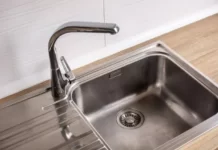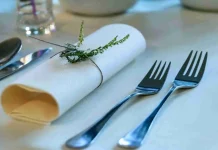Have you planned of renovating your space or upgrading your sinks? If so, you must have heard of quartz sink. As famous as they are, it’s still confusing if you should be spending your money on them or not. So here we are to help you get this decision straight.
What exactly is Quartz Sink?
The term quartz sink refers to a basin made of a thick stone and an acrylic polymer mixture. Quartz composite is a man-made thing, this material is made out of natural quartz and acrylic resin usually in a ratio of 80/20.
Ways in which Quartz sinks are installed
These quartz sinks come in a variety of shapes, designs, sizes, and bowl configurations which can be used as top-mounted or undermounted. Quartz composite is available in about every sink bowl shape imaginable, including D-bowls, rectangular, square, and round sink bowls. You can choose a bowl size that best suits your requirements based on your space and design.
Quartz Sink Pros and Cons
Here are quartz kitchen sink pros and cons.
Pros of Quartz Sink
Let’s discuss the pros of Quartz sink so you get a better idea of why to get your sinks made of Quartz.
1. Durability
Quartz sinks are extremely durable. Quartz is a tough, scratch-resistant, stain-resistant, crack-resistant, and heat-resistant substance.
2. Smoothness
Quartz is a remarkably smooth material. It is non-porous, unlike many other materials. It does not have the possibility of collecting food, oils, or acid in pores, which can cause your sink to wear down over time and be difficult to clean. Exposure to chemicals is nearly unavoidable for sinks due to the nature of cooking in the kitchen and the quantity of foot traffic in the bathroom.
3. Flexibility
Quartz is made up of a number of different minerals. It resembles stone in appearance and texture, although it is more pliable. Quartz is available in a wide range of colors and patterns, which you can select during the manufacturing process. This allows you a little more flexibility when it comes to designing your kitchen or bathroom and selecting a sink that complements your existing décor. Due to its flexibility, quartz may appear to be more expensive than other materials, although this is not the case.
4. Odor Resistant
It’s nonporous, so food particles don’t spread. It’s hygienic and bacteria resistant. Its natural soundproofing absorbs noise. Quartz is particularly sanitary and odor-resistant because it does not have a porous surface. So you can cook with confidence in the kitchen and feel assured that your bathroom sink will last as well.
Cons of a Quartz Sink
Quartz composite sinks aren’t the same as solid stone sinks, they don’t have the same pattern or sheen, only a matte finish available. The color variation is also different from natural stone sinks. Quartz sinks can also be tough on fallen dishes, so be careful while washing your delicate glasses or china.
1. Breakable
Quartz sinks are extremely durable since they are designed to look like stone. While this has its advantages, it can be extremely rough on your plates and other utensils. All it takes a single drop to break something delicate.
2. Limits to Customization
Despite the fact that quartz is a more flexible material with personalization choices, there are still limitations to modification. Composite materials can be molded, but they aren’t totally customizable.
3. Darker colors reveal signs of wear and tear
Darker hues, do not endure as long as lighter colors since the wear is more visible. In many ways, quartz sinks are well-balanced. Quartz is the way to go if you’re searching for a low-cost, easy-to-maintain sink.
Now that we’ve talked about the quartz sink pros and cons. Let’s talk about caring and cleaning tips.
How to care for a quartz sink
Quartz kitchen sinks require little upkeep. Clean it with a light detergent on a regular basis, then deep-clean it as needed with a nylon brush and a cleanser such as Bar Keeper’s Friend. After each usage, rinse the sink and wipe it dry. Avoid using abrasive cleaners or sponges, as well as strong cleaning solutions such as ammonia.
How To Clean Quartz Sink
On a daily basis, rinse and remove any standing water, food particles, or soap. Mineral deposits can alter the appearance and color of quartz with time, so it’s important to clean it on a regular basis.
Always use non-abrasive, gentle cleaners. If food or other elements have become stuck on the surface, clean it with a gentle, non-abrasive cleaner and thoroughly rinse it. After cleaning the sink, make sure it’s completely dry to avoid stains. When cleaning a quartz sink, avoid using abrasive pads or steel wool. Instead, use a sponge soaked in a solution of 50 percent white vinegar and 50 percent water to remove stubborn stains.
To minimize staining or damage to the finish of quartz kitchen sinks, it’s a good idea not to leave dirty dishes, coffee grounds, or foods that may stain the sink.
Bottom line!
In our opinion quartz composite sink is one of the most durable materials. It’s smooth and nonporous, making it easy to clean. Quartz sink is also heat resistant and stain, scratch, dent, and chip resistant. It’s also hygienic, as it’s resistant to bacteria and odors.
Quartz is a relatively durable and cost-effective material for kitchen sinks. They are low-maintenance and they are long-lasting so it provides your kitchen and bathroom an exquisite and magnificent look. When compared to other materials for sinks, quartz is the most adaptable, cost-effective, and versatile alternative for incorporating into your home.













